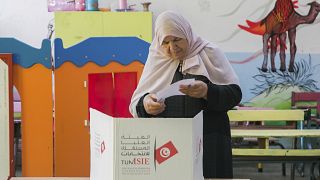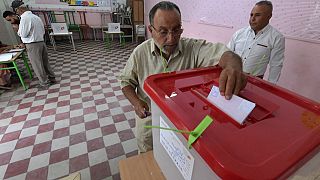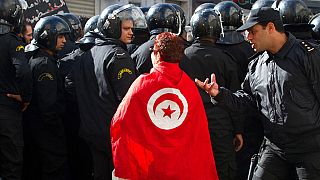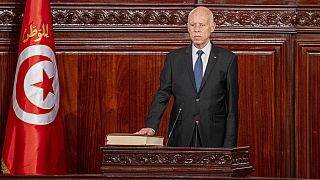Tunisia
The final results of a controversial referendum granting unchecked powers to the office of Tunisia's President Kais Saied showed 94.6 percent of votes in favour, the electoral authority said Tuesday.
Voters overwhelmingly approved the new constitution, the electoral board said, officially announcing definitive results from the July 25 poll.
The charter was approved by just over 2.6 million people, the board's president Farouk Bouasker told reporters.
Turnout was considered very low at 30.5 percent.
The referendum came a year to the day after Saied sacked the government and froze parliament in what rivals have branded a coup.
Despite the low turnout, Saied's move against a system that emerged after the 2011 overthrow of dictator Zine El Abidine Ben Ali was welcomed by many Tunisians.
Many people were fed up with high inflation and unemployment, political turmoil and a system they felt had brought little improvement to their lives.
However, opposition politicians and human rights groups have warned of a return to dictatorship under the new constitution.
"The constitution comes into force with the announcement of the final results, its promulgation by the president and its publication in the official journal," Bouasker said on Tuesday.
He said the fact that appeals against the referendum process had been rejected "confirmed the integrity and transparency of ISIE", the North African country's electoral commission.
Bouasker said ISIE had been subjected to "an unprecedented wave of allegations by certain political parties and civil society groups".
The new text puts the president in command of the army, allows him to appoint a government without parliamentary approval and makes it virtually impossible to remove him from office.
He can also present draft laws to parliament, which will be obliged to give them priority.
A second chamber is created within parliament to represent the regions and counterbalance the assembly itself.
Tunisia is mired in crisis with growth of just three percent, nearly 40 percent of young people jobless and four million people out of a population of nearly 12 million in poverty.
For weeks the heavily indebted country has been negotiating a new loan with the International Monetary Fund, hoping to obtain $4 billion, and also the chance to open other avenues of foreign aid, mainly European.












01:37
Record participation at 24th Sofi Great Ethiopian Run
11:05
Africa's hight cost of climate change [Business Africa]
01:17
COP29 finance talks lag as the summit reaches its halfway mark
00:51
Interior minister says Gabon has approved a new constitution
01:00
Tunisia: French student detained for weeks, flies back home
01:38
COP29: What next for Africa's energy transition?